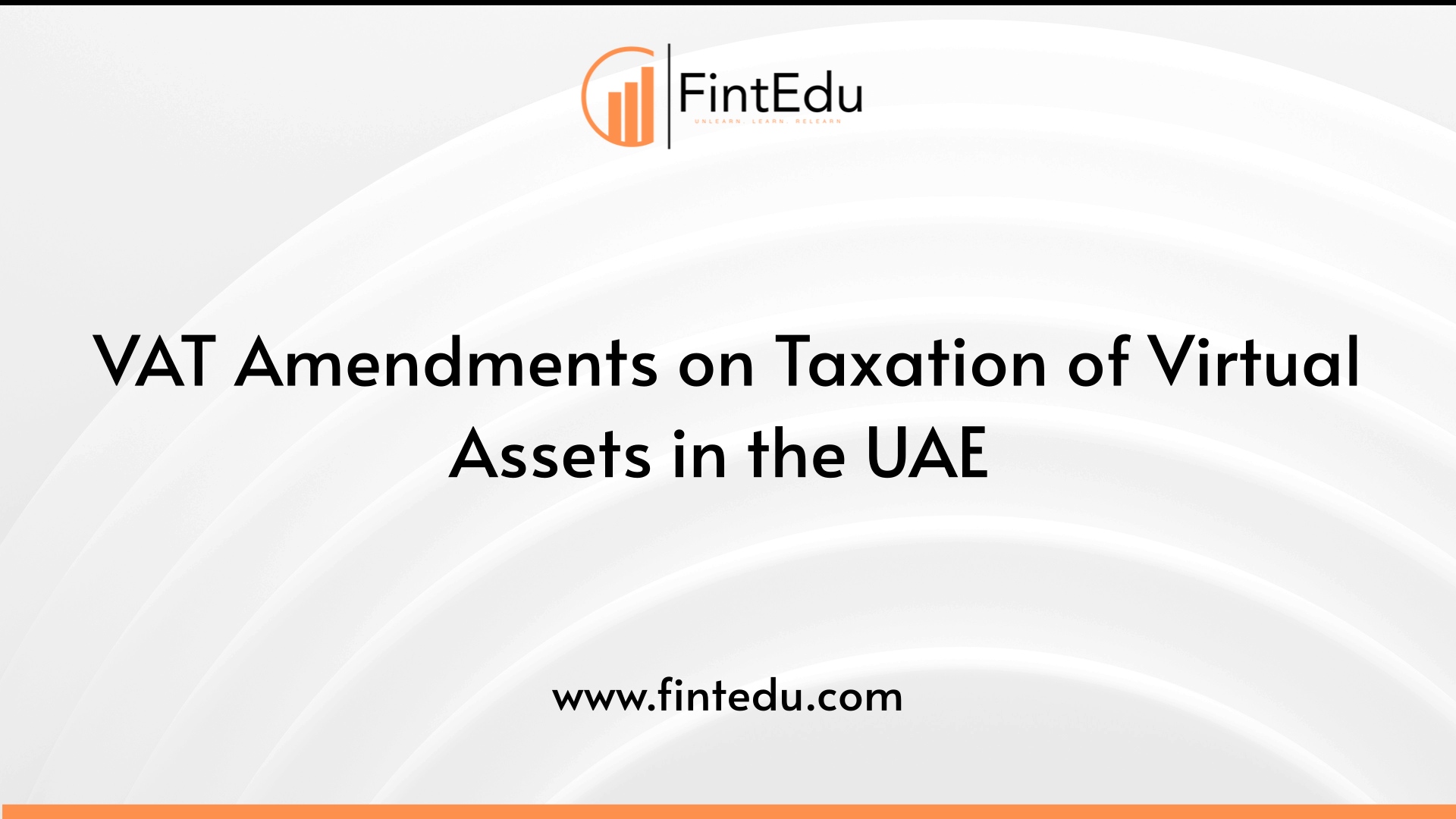LISTEN TO THIS ARTICLE
The FTA of the UAE recently announced significant amendments to the Executive Regulation of Federal Decree-Law No. (8) of 2017 on VAT. Published on 2 October 2024, through the Cabinet Decision No. (100) of 2024, these amendments are set to come into force on 15 November 2024.
One of the key amendments include the VAT exemption accorded to virtual assets.
Key Changes to Definitions
One of the most notable updates is the introduction of a new definition for "virtual assets" in Article 1. Virtual assets are defined as a digital representation of value that can be traded, transferred digitally, and may serve as an investment. These assets, however, do not include digital representations of fiat currencies (i.e., traditional paper currencies) or financial securities.
This new definition acknowledges the increasing role of digital and crypto-assets in today’s economy, and it sets the groundwork for their VAT treatment under the UAE law.
VAT Exemptions
Having defined the concept of “virtual assets”, the Cabinet Decision proceeds to discuss the VAT treatment of such assets. It grants a VAT exemption to certain virtual asset transactions, viz.
- The transfer of ownership of virtual assets, including virtual currencies;
- The conversion of virtual assets; and
- Keeping and managing virtual assets and enabling their control.
The VAT exemptions related to the transfer and exchange of virtual assets apply retrospectively, covering transactions from 1 January 2018. This provides significant relief to businesses that have been involved in virtual asset transactions over the past several years.
Conditions for VAT Exemption
Article 42(3)(a) introduces an important condition for claiming the VAT exemption. It states that specific transactions in virtual assets will be exempt for VAT purposes if “they are not conducted in return for an explicit fee, discount, commission, and rebate or similar.”
This is an important condition which must be met for claiming VAT exemption. It is crucial for businesses to understand the conditions for these exemptions are met to avoid any potential liabilities.
Conclusion
The introduction of Cabinet Decision No. (100) of 2024 marks a significant step in modernizing the UAE’s VAT framework. By addressing the tax treatment of virtual assets, the FTA is setting a clear path for industries operating in the digital economy.
As the 15 November 2024 implementation date approaches, businesses should closely review these updates and seek professional advice to evaluate VAT compliance, eligibility for input tax credit and the consequences of retrospective application of the amendment. Businesses may have to restructure their transactions or agreements where necessary.
Disclaimer: Content posted is for informational and knowledge sharing purposes only, and is not intended to be a substitute for professional advice related to tax, finance or accounting. The view/interpretation of the publisher is based on the available Law, guidelines and information. Each reader should take due professional care before you act after reading the contents of that article/post. No warranty whatsoever is made that any of the articles are accurate and is not intended to provide, and should not be relied on for tax or accounting advice
Contributor
Related Posts

Qatar, 05 January, 2026: The General Tax Authority (GTA) has announced that the tax return f...
Read More
Bahrain, 05 January, 2026: Bahrain’s government has unveiled a comprehensive fiscal reform ...
Read More
Oman, 05 January, 2026: The Tax Authority has announced the postponement of the Digital Tax Sta...
Read More